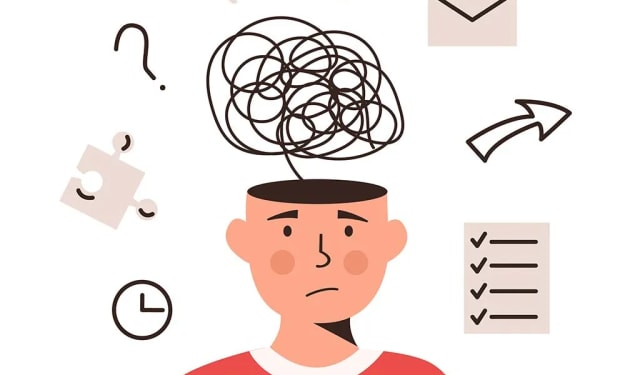Histrionic Personality Disorder: Causes, Symptoms, Diagnosis and Treatment
Histrionic Personality Disorder: Causes, Symptoms, Diagnosis and Treatment

Histrionic Personality Disorder (HPD) is a mental health disorder characterized by excessive attention-seeking behaviors, exaggerated emotional expression, and a tendency to manipulate others to gain attention and approval. Individuals with HPD often struggle to form meaningful relationships and may engage in impulsive behaviors to maintain a sense of excitement and stimulation in their lives. In this article, we will discuss the causes, symptoms, diagnosis, and treatment options for HPD.
Causes of Histrionic Personality Disorder
The exact cause of HPD is unknown, but there are several factors that may contribute to its development. One possible cause is genetics, as research has shown that there may be a genetic predisposition to personality disorders in general. Environmental factors such as childhood trauma, neglect, or abuse may also contribute to the development of HPD. Additionally, cultural factors may play a role, as some cultures may place a higher value on attention-seeking behaviors or emotional expression.
Symptoms of Histrionic Personality Disorder
The symptoms of HPD can be challenging to recognize, as they can be similar to other personality disorders or mental health conditions. Some common symptoms of HPD include:
Excessive attention-seeking behavior: Individuals with HPD may engage in attention-seeking behaviors, such as dressing provocatively or engaging in dramatic, attention-grabbing behaviors.
Exaggerated emotional expression: People with HPD may exhibit exaggerated emotional expression, such as overly dramatic reactions to minor events or exaggerated facial expressions.
Difficulty forming meaningful relationships: Individuals with HPD may struggle to form meaningful relationships, as they may prioritize attention and approval over genuine connections.
Impulsive behavior: People with HPD may engage in impulsive behaviors, such as spending money recklessly, engaging in risky sexual behavior, or substance abuse.
Manipulative behavior: Individuals with HPD may manipulate others to gain attention and approval, such as by playing the victim or using charm to get what they want.
Diagnosis of Histrionic Personality Disorder
Diagnosing HPD can be challenging, as the symptoms can be similar to other personality disorders or mental health conditions. To diagnose HPD, a mental health professional will typically conduct a comprehensive assessment, which may include a clinical interview, psychological testing, and a review of medical and psychiatric history.
The Diagnostic and Statistical Manual of Mental Disorders, Fifth Edition (DSM-5) outlines the criteria for diagnosing HPD. To receive a diagnosis of HPD, an individual must exhibit five or more of the following symptoms:
- A need to be the center of attention
- Inappropriate or seductive behavior
- Rapidly shifting and shallow emotions
- Use of physical appearance to draw attention
- Speech that is excessively impressionistic and lacking in detail
- Dramatic, theatrical, or exaggerated expression of emotions
- Suggestible, easily influenced by others, and easily persuaded by others
- Believes that relationships are more intimate than they actually are.
- Overly concerned with impressing others
- Displays shallow or exaggerated emotions.
Histrionic personality disorder treatment methods
Treatment for HPD typically involves a combination of therapy and medication. There is no single treatment that works for everyone with HPD, so it is essential to work with a mental health professional to develop an individualized treatment plan. Here are some common histrionic personality disorder treatment methods:
Psychotherapy
Psychotherapy, also known as talk therapy, is a common treatment for HPD. In therapy, individuals can learn new coping skills, develop a more realistic view of themselves and others, and improve their communication and relationship skills. Cognitive-behavioral therapy (CBT) is a type of psychotherapy that can be particularly effective in treating HPD. CBT focuses on changing negative thought patterns and behaviors and replacing them with more positive ones. In addition, dialectical behavior therapy (DBT) may also be useful, as it can help individuals learn how to regulate their emotions and tolerate distress.
Medication
While medication is not typically the first-line treatment for HPD, it can be helpful in managing some of the symptoms associated with the disorder. Antidepressants and anti-anxiety medications may be prescribed to help individuals manage mood swings and anxiety, while antipsychotic medications may be used to treat symptoms such as paranoia or delusions.
Group Therapy
Group therapy can be an effective treatment option for individuals with HPD, as it allows them to connect with others who may be experiencing similar challenges. Group therapy can help individuals develop social skills and learn how to communicate and interact with others in more positive ways.
Self-help and Support Groups
Self-help and support groups can be a valuable resource for individuals with HPD, as they can provide a sense of community and connection. Groups such as Narcotics Anonymous or Alcoholics Anonymous can provide support for individuals struggling with substance abuse, while groups such as Emotions Anonymous can provide support for those struggling with emotional regulation.
Family Therapy
Family therapy can be helpful in treating HPD, particularly if family members are also involved in the individual's care. In family therapy, the therapist works with the entire family to help improve communication and strengthen relationships. Family therapy can also help family members understand the challenges associated with HPD and learn how to support their loved one effectively.





Comments
There are no comments for this story
Be the first to respond and start the conversation.